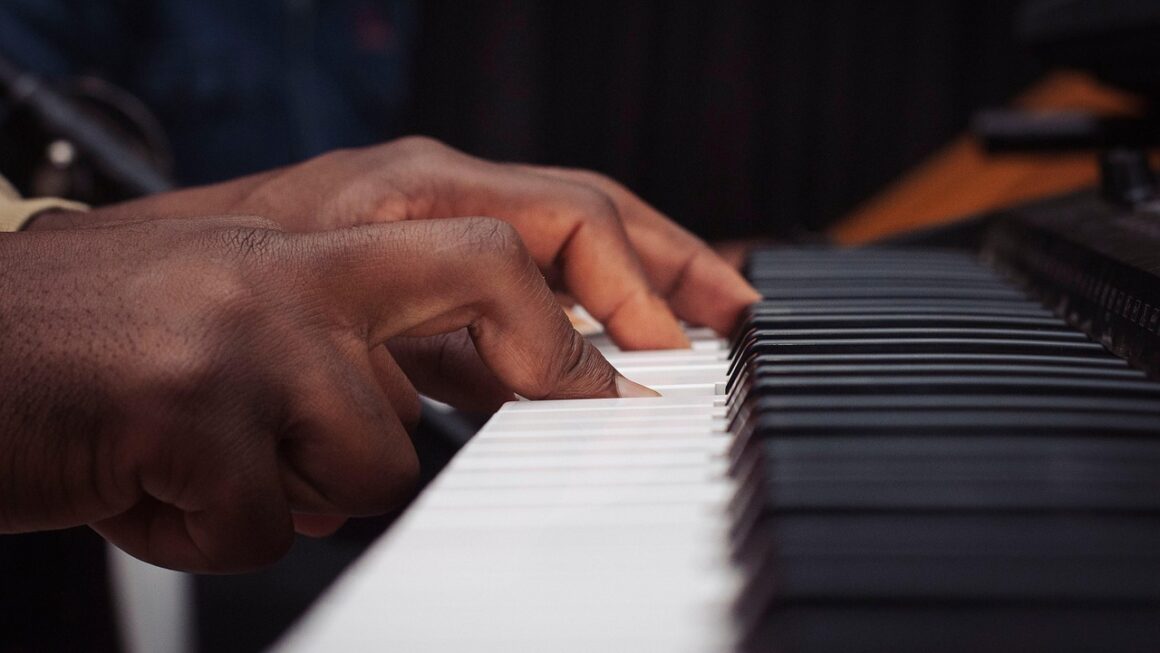Music. It’s the universal language, a thread woven through the fabric of our lives, connecting us to memories, emotions, and each other. Whether you’re a seasoned musician, a casual listener, or somewhere in between, engaging in meaningful “music talk” can enrich your understanding and appreciation of this powerful art form. This blog post delves into the art of music talk, exploring how to participate effectively, analyze music, and discover new sounds. Get ready to unlock a deeper level of musical engagement!
Understanding the Elements of Music Talk
Defining Music Talk
Music talk, at its core, involves discussing music, sharing opinions, and analyzing its various elements. It’s more than just saying “I like this song;” it’s about articulating why you like it, and connecting your appreciation to the music’s construction and impact. It involves discussing genre, composition, performance, and cultural context.
The Benefits of Engaging in Music Talk
- Enhanced Listening Skills: By actively discussing music, you become a more attentive and discerning listener.
- Expanded Musical Knowledge: Hearing different perspectives broadens your understanding of various genres, artists, and musical techniques.
- Improved Communication Skills: Articulating your thoughts and feelings about music sharpens your ability to express yourself clearly and persuasively.
- Deeper Appreciation: Understanding the nuances of a piece of music deepens your enjoyment and appreciation.
- Discovery of New Music: Sharing recommendations and hearing about others’ favorites leads to discovering new artists and genres.
- Strengthening Connections: Music talk is a great way to bond with others who share your passion for music.
Approaching Music Talk with an Open Mind
A crucial aspect of productive music talk is approaching discussions with an open mind. Recognize that music taste is subjective, and there’s no universally “right” or “wrong” opinion. Be prepared to listen to perspectives different from your own and learn from others’ insights. Avoid being overly critical or dismissive of differing viewpoints.
Deconstructing Music: Key Elements to Discuss
Analyzing Musical Structure
Understanding the building blocks of a song allows for a more in-depth conversation. Consider these aspects:
- Melody: How memorable and pleasing is the main tune? Is it simple or complex?
- Harmony: How do the chords support the melody? Are the harmonies consonant or dissonant?
- Rhythm: What is the tempo and time signature? How does the rhythm contribute to the overall feel of the song? Is it syncopated or straightforward?
- Form: What is the overall structure of the song (e.g., verse-chorus, ABAB, sonata form)?
- Instrumentation: What instruments are used, and how do they interact with each other?
- Dynamics: How does the volume change throughout the song? Does the dynamic range create contrast and impact?
Example: Discuss the gradual build-up of dynamics in Queen’s “Bohemian Rhapsody.”
Genre and Influences
Identifying the genre of a song is only the starting point. Delve deeper by exploring the song’s influences.
- Genre Conventions: Does the song adhere to or subvert the typical conventions of its genre?
- Historical Context: How does the song reflect the musical trends and cultural context of its time?
- Artist Influences: What artists or musical traditions influenced the composer or performer?
Example: Discuss how Radiohead blends alternative rock with electronic influences.
Lyrical Content and Themes
For songs with lyrics, consider the lyrical content and its impact on the overall meaning.
- Storytelling: Does the song tell a story? If so, what is the narrative?
- Themes: What are the main themes or messages conveyed in the lyrics?
- Imagery: What kind of imagery does the song evoke?
- Rhyme Scheme and Meter: How do the rhyme scheme and meter contribute to the song’s flow and impact?
* Example: Analyze the symbolic lyrics and themes of societal alienation in Pink Floyd’s “The Wall.”
Engaging in Effective Music Conversation
Active Listening
Active listening is paramount. Pay attention to what the other person is saying, both verbally and nonverbally. Ask clarifying questions and summarize their points to ensure you understand their perspective.
Articulating Your Thoughts
Clearly and concisely express your opinions and observations. Use specific examples from the music to support your claims. Avoid vague generalizations.
- Example: Instead of saying “This song is good,” say “I like the way the guitar solo builds in intensity throughout the song.”
Respecting Different Opinions
Recognize that musical taste is subjective. Be respectful of others’ opinions, even if you disagree with them. Acknowledge their perspective and avoid dismissing their views.
Asking Open-Ended Questions
Encourage deeper discussion by asking open-ended questions that require more than a simple “yes” or “no” answer.
- Example: Instead of asking “Did you like the song?”, ask “What aspects of the song did you find most appealing or interesting?”
Discovering New Music Through Conversation
Sharing Recommendations
Music talk is a fantastic way to discover new music. Share your favorite artists and songs with others and be open to receiving recommendations. Explain why you enjoy the music you’re sharing.
Utilizing Music Streaming Platforms
Use music streaming platforms like Spotify, Apple Music, or YouTube to easily share songs and create collaborative playlists.
Attending Live Performances
Attending live concerts and music festivals provides opportunities to discover new artists and share the experience with others, fostering deeper music talk and appreciation. After the concert, discuss your favorite moments and overall impressions.
Conclusion
Music talk is more than just casual conversation; it’s a gateway to deeper understanding, appreciation, and connection. By engaging in thoughtful discussion, deconstructing musical elements, respecting diverse opinions, and actively listening, you can unlock a richer and more fulfilling musical experience. So, go ahead, start a conversation, share your passion, and discover the world of music together!



